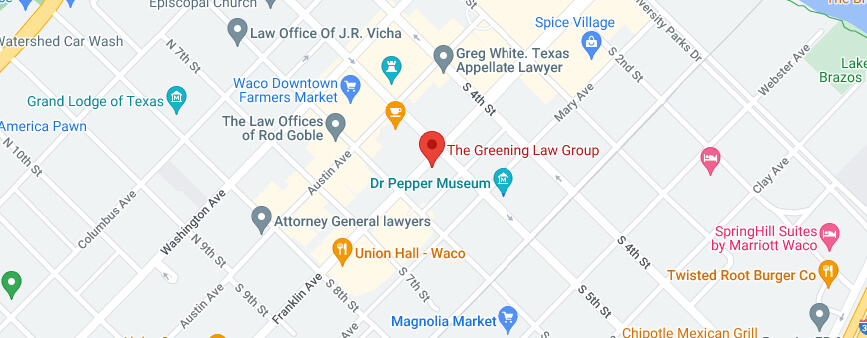How Accurate Are Field Sobriety Tests?
Before a police officer can arrest an individual on a DWI charge, they must establish probable cause that the suspect was operating a vehicle under the influence. In addition to checking sensory cues, such as the appearance of the driver, their speech patterns, and whether they smell like alcohol, officers frequently ask those suspected of drinking and driving to submit to a battery of tests known as field sobriety tests (FSTs). These tests are designed to check the physical and mental capabilities of the subject and provide more insight into whether they may be intoxicated.
While FSTs are commonly used by law enforcement, the NHTSA’s Standardized Field Sobriety Testing Manual notes that the most reliable of the three standardized tests is only 77% accurate at detecting subjects at or above .10 BAC. Additionally, this level of accuracy is only reached if the officer administers the tests correctly and there are no other mitigating circumstances that could impact the test results. When these tests are performed in the field, the accuracy is likely much lower, and even sober individuals may fail to pass.
Many factors can play into the accuracy of FSTs and the grading of an individual’s execution of the tasks. If you have performed poorly on field sobriety tests in Texas, do not assume that a DWI conviction is imminent. Contact an experienced DWI defense attorney as soon as possible for skilled legal assistance.
What is a Field Sobriety Test?
Field sobriety tests are tasks given to a driver after being pulled over by an officer. The tasks test the driver’s balance, coordination, and coherence to determine whether their driving skills may be impaired by the consumption of alcohol.
Many tests require the individual to split their concentration between multiple tasks. While there are many non-standardized tests that may be applied, such as saying the alphabet backward, the results are not admissible in court. However, three standardized tests exist, which are recommended by the NHTSA and may be used as evidence in a DWI case.
Horizontal Gaze Nystagmus (HGN) Test
The HGN is considered the most accurate of the three standardized tests. It involves an officer placing an object, such as a pen, in front of the driver’s face. The officer will ask the driver to follow the pen with their eyes as they move it. If involuntary eye movements occur, it may indicate intoxication.
One-Leg Stand (OLS) Test
The driver must exit the vehicle and stand in front of the officer. They will be asked to lift one foot off the ground and hold the position while counting to a specified number, usually 30. If the driver loses balance or has difficulty counting or staying still, they may be considered intoxicated.
Walk-and-Turn (WAT) Test
The driver must walk heel to toe in a straight line, then turn and walk back in the same way. Stumbling, tripping, losing balance, or other issues with following the instructions for this test may demonstrate impairment.
What Issues Can Arise With Field Sobriety Tests?
While the accuracy of field sobriety tests is often touted in law enforcement literature, it fails to account for the difficulties inherent in administering these tests effectively in real-life situations.
Many individuals would face challenges passing a field sobriety test even when sober and in much lower-stress circumstances. The following issues can make field sobriety tests an unreliable indicator of driver impairment and may be used to challenge the results of a failed test.
Susceptibility to Conditions
FSTs are performed on the roadside, in all types of weather, and sometimes at night. Uneven ground, difficulty seeing, cold limbs, and even a fear of being struck by nearby traffic are just some of the issues that may cause the test results to be unreliable. Your current clothing and footwear choices, like high heels or heavy work boots, may also make it more challenging to walk normally or remain comfortable while attempting to complete the tasks.
Inaccuracy Due to Medications or Illnesses
People can suffer from a wide range of physical maladies that can impact their ability to perform FSTs correctly, including inner ear issues, arthritic joints, and eye problems.
Older age can also affect balance and mobility without impacting the individual’s ability to operate a vehicle safely. Certain medications can also affect your eye and body movements.
Incorrect Administration of the Tests
The officer may provide unclear instructions or demonstrate the tests incorrectly, leading the driver to fail. Even minor errors in test administration, such as holding the pen too close or too far away during the HGN test, can have a substantial impact on the reliability of the results.
Impacts of Anxiety on Testing
Getting pulled over is a stressful and frightening experience for many people. You could be fighting nerves and experiencing rushing adrenaline while the traffic stop is ongoing. When your body is in fight-or-flight mode due to increased stress, it can be challenging to concentrate on instructions and tasks or carefully control your body movements, leading to failed sobriety tests.
What Can You Do if You’ve Failed a Field Sobriety Test?
A failed field sobriety test often leads to a preliminary breathalyzer test and an arrest for a DWI. If this occurs, it is in your best interest to immediately seek legal counsel from an experienced defense attorney. The Greening Law Group can provide knowledgeable legal assistance to help you defend yourself against the DWI charges and reach the best possible outcome in your case.
Contact our College Station law firm today at 979-406-5756 to schedule a no-obligation case evaluation.











